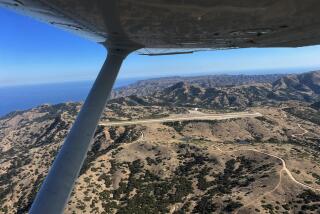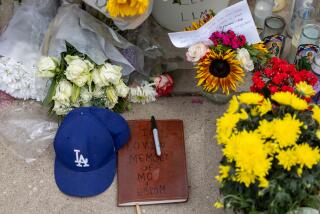Asiana crash survivor describes aiding injured, long wait for help
In an interview with NBC Bay Area, Elliott Stone, who runs Elite Martial Arts Academy in Scotts Valley near Santa Cruz said he was returning with his fiancee, brother and parents from a martial arts competition in South Korea and initially thought the plane might stabilize as it landed.
Once it started fishtailing, he said in an interview, he grabbed his girlfriend’s arm, thinking, ‘Oh my God, maybe we’re going to die.’”
PHOTOS: Asiana Airlines jet crashes at San Francisco airport
The family emerged safely from the plane and Stone and his father, Walter Stone, walked toward the seawall searching for victims. They found four.
“We stayed with them, hung out with them, comforted them -- just yelling, yelling for ambulances, firetrucks, anyone to come help,” Stone said. “We had to end up calling 911 because we weren’t getting immediate response there.”
Elliott Stone said the family called 25 minutes after the crash and first responders did not get to them for another 15 minutes. They believe one of the victims they were consoling was the Chinese teenager who was among the two fatalities.
The San Mateo County coroner has identified the girl found near the seawall as Wang Linjia. The 16-year-old student was on her way to a Christian summer camp in West Hills and has been described in Chinese press accounts as a poetic and frequent user of China’s Twitter equivalent and accomplished at calligraphy.
Walter Stone told NBC Bay Area that “there was lots of blood, there were very significant injuries. We tried to comfort them the best we could, talk to them, keep them breathing.”
San Francisco Fire Department spokesman Lt. Mindy Talmadge said in an interview Thursday that “the important thing to recognize is that the rules of engagement at a multi-casualty incident were followed and that says you begin triage with the first patient that you come in contact with.”
Of the 23 personnel assigned to the airport crash house, four began triaging the more than 300 passengers and crew when they arrived on scene, “even before anyone else was dispatched,” she said. “The rules of engagement were followed and executed and the outcomes of the patients indicate that it was a job well done.”
According to protocol for plane crash responders, the first priority is “making the aircraft as safe as it could be as early as it could be for passengers and first responders,” she said. The next priority is “rescuing people from the burning aircraft” and there were reports of people trapped. Then the triaging of patients begins.
According to Talmadge, the fire personnel stationed at the airport were dispatched at 11:28, less than a minute after the crash. At 11:30 a.m., San Mateo County fire units were dispatched. At 11:34 a.m., American Medical Response ambulances from San Mateo County started arriving on scene. That same minute, San Francisco Fire Department units were dispatched from the city.
Taking the call at the communications center was Fire Department Capt. Tony Molloy, who serves as the rescue captain at the airport Monday through Friday. (There is no rescue captain stationed at the airport on weekends, Talmadge said).
He called in a replacement and headed down to the airport, taking over triage.
As for the severely injured who were being aided by the Stone family near the seawall, Talmadge said records indicate that personnel with SFO’s airfield operations “were the ones apparently that were looking on the outskirts of where the fuselage landed.” At 11:42 a.m., 14 minutes after impact, they reported that they had found some injured people at the rear.
Talmadge said she did not know when medical personnel got to them but she said it was likely “as soon as they could assign someone there.”
Frantic passengers who called 911 to say they could not see ambulances may not have realized that ambulances do not come onto the runway in an air-crash but stage in a nearby area. Triaged passengers are brought to them.
ALSO:Saudi princess appears in O.C. court in slave-labor case
Asiana flight 911 tapes: Commuters, hikers reported crashDays after Asiana crash, FAA to require more training for co-pilots
Twitter: @leeromney
More to Read
Sign up for Essential California
The most important California stories and recommendations in your inbox every morning.
You may occasionally receive promotional content from the Los Angeles Times.










